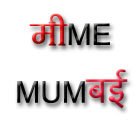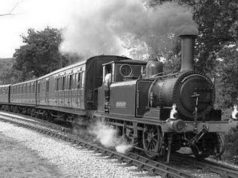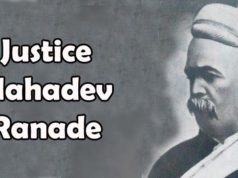Various educational institutions were established in Mumbai post independence. Below are the colleges were formed by Indian scholars & donors, some were named after the British officials who had also contributed towards Mumbai’s cause.
- Elphinstone College
- Wilson College
- Sydenham College
- Haffkein institute
- Ruia & Podar College
- Khalsa College
- Jaihind College
- Sophia
- National & K.C. College
- VJTI
- Xaviers
- Grand Medical
- Ismail Yousuf
- Asiatic Society
Elphinstone College
It is the oldest institution. The leading citizens of Mumbai founded the Elphinstone Institute in memory of Mountstuart Elphinstone in recognition of his valuable services to the cause of Indians. The college assumed independent existence as Elphinstone College in April 1856 and was formally affiliated to the Bombay University in 1860.
Wilson College
A Scottish missionary Dr John Wilson earlier started Native English school in 1832. After his death it was named as Wilson High school. Then college division was added in 1836 which was shifted to Chowpatty in 1889. One of the special features of Wilson’s institution was that it was open to students of all castes. He was invited in 1857 to be one of the founder members of the University of Mumbai
Sydenham College
The origin of this college was the efforts of Sir Dinshaw Wacha, Manmohandas Ramji, Sir Vithaldas Thackersey, K.Subrami Aiyar and Lord Sydenham. The college was named after Lord Sydenham in 1916, and was moved into its newly built present premises as late as 1955.
Haffkein institute
The institute is named after Jew Professor Walder Haffkein. In 1897 Mumbai was worst affected by plague and famine. Professor Walder Haffkein, a bacteriologist, developed the anti-plague prophylactic at his laboratory in Mumbai. Haffkine’s discovery, which could relieve millions of Mumbaites of the fear of deadly plague.
Ruia & Podar College
The Shiksan Prasarak Mandali of Pune, who expanded Western education after the Deccan Education Society, established two colleges in Bombay, viz, Ramnarain Ruia College in 1937 and R.A.Podar College of Commerce and Economics in 1941. The first one received a donation of Rs. 2 lakhs from the house of Ruias and the second one Rs.1.46 lakhs from the house of Podars, both of which have many textile mills and other business to their credit in Bombay.
Khalsa College
The Sikh community also contributed to the expansion of educational facility in the city. The Khalsa College was established in 1937 by the Gurudwara Committee of Shri Nankana Sahib, the birth place of the founder of the Sikh religion, Shri Guru Nanak.
Jaihind College
Hindus in Pakistan and thousands of Sindhi had to migrate to Bombay in 1948. Although displaced from their native land, they made Bombay their home and in the public life of the city. Accordingly the Jai Hind College and Basantsing Institute of Science was founded in June 1948 by the migrant professors from Karachi.
Sophia College
The Sophia College for Women was founded by the Society for Higher Education of Women in India in 1940. It is unique institution striving for all-round development of ladies.
National College & K.C. College
The National College of Bandra, the second college to be established in the suburbs of Bombay (The Ismail Yusuf College was the first in the suburbs.) stands testimony to the undaunted spirit of the Sindhis. It was opened in June 1949 by the Hyderabad Sind National Collegiate. Board at the efforts of H.G. Advani and Prof. K.M.Kundnani. The munificence of the houses of Wassiamull Assomuland Kishinchand Chellaram, and Bagomal Trust helped the emergence of the college as a successor of the two colleges at Hyderabad Sind, which were shattered after Partition of India. The K.C. College was the second remarkable venture of the above mentioned Board in 1954.
VJTI
Bombay, and in fact India, owes the initiation of technical education to the immense foresight and zealous efforts of such public spirited leaders as Dadabhai Naoroji, Pherozeshah Mehta, M.G.Ranade, Dinshaw Wacha and Badruddin Tyabji, as well as to the support of Lord Reay, the Bombay Municipal Corporation and the Bombay Mill owners Association. The foundation of the Victoria Jubilee Technical Institute in 1887, which is probably the oldest institution of its kind in India, was mainly due to the endeavour of these men of vision and the organisations which actively supported the cause. The instituted was named to commemorate the Jubilee of Queen Victoria and was housed in the old Elphinstone College building at Byculla which was donated by Sir D.M.Petit. It was later shifted to its present premises at Matunga in 1923
Xavier College
The St. Xavier’s College was one of the early protagonists of Western learning and owed its origin to the St. Mary Institution and St. Xavier’s High School. It was affiliated to the Bombay University in January 1869.
Grant Medical College
The idea of a medical college was first originated by Robert Grant, Governor of Bombay, in 1835. After his death, the citizens of Bombay with Jagannath Shankarshet and Sir Jamshetji Jijabai, resolved in public meeting in the Town Hall on 28th July 1835 that the proposed college may be named to commemorate Robert Grant. Accordingly the Grant Medical College was inaugurated on 3rd November 1845 by George Arthur, the Governor.
Ismail Yousuf
The Ismail Yusuf College was the first in the suburbs. It was established in 1929-30, owes its origin to the generosity of Sir Mahomed Yusuf who had donated eight lakh rupees for higher education of Muslims, way back in 1914. It has, however, been a cosmopolitan institution.
Asiatic Society
The Asiatic Society is one of the oldest institutions founded in 1804 by Sir James Mackintosh, the chief justice of Mumbai. The building completed in 1833 at a cost of five lakhs of rupees. Upto 1831 the Asiatic Society functioned in a rented building in the Fort. That year it shifted to the north wing of the Town Hall. The Society was restricted exclusively to European Scholars. It was only in 1840 that Maneckji Cursetji, a Parsi became the first Indian to be admitted as its member.
Founded to encourage research and scholarship in oriental knowledge, the Society promoted the study of a wide variety of subjects ranging from geography, geology, botany, zoology, mineralogy, and meteorology to the study of languages, racial characteristics, religion and the heritage of the people of Western India.







